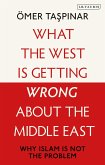Drawing upon extensive fieldwork, this book unveils the Egyptian Muslim Brotherhood intra-dynamics by examining the emerging pathways of political disengagement and radicalization in the aftermath of 2013 Coup. It explores how the 2011 waves of protest and the 2013 military takeover of power - two contradictory phases, in terms of their implications for political Islam - shaped young members' perceptions towards Egyptian politics, violence and the role of Islamic political groups. This offers a key to understanding the ideological and strategic evolution of Islamists, in alignment with regional changes such as the rise of transnational jihadist groups and the fading of popular protest in the Arab region. The book relies on Social Movement Theory and contentious politics literature to develop a relational approach for analysing the positionalities of the young Brothers. This elucidates change within Islamic groups as a multi-layered, evolving phenomenon that cannot be attributed solely to either ideological or structural changes, but rather to manifold factors operating at different levels. It also rejects the prevailing binary classification of moderate versus radical activism when seeking to understand the effects of repression on the trajectories of Islamic movements' members.
Bitte wählen Sie Ihr Anliegen aus.
Rechnungen
Retourenschein anfordern
Bestellstatus
Storno









